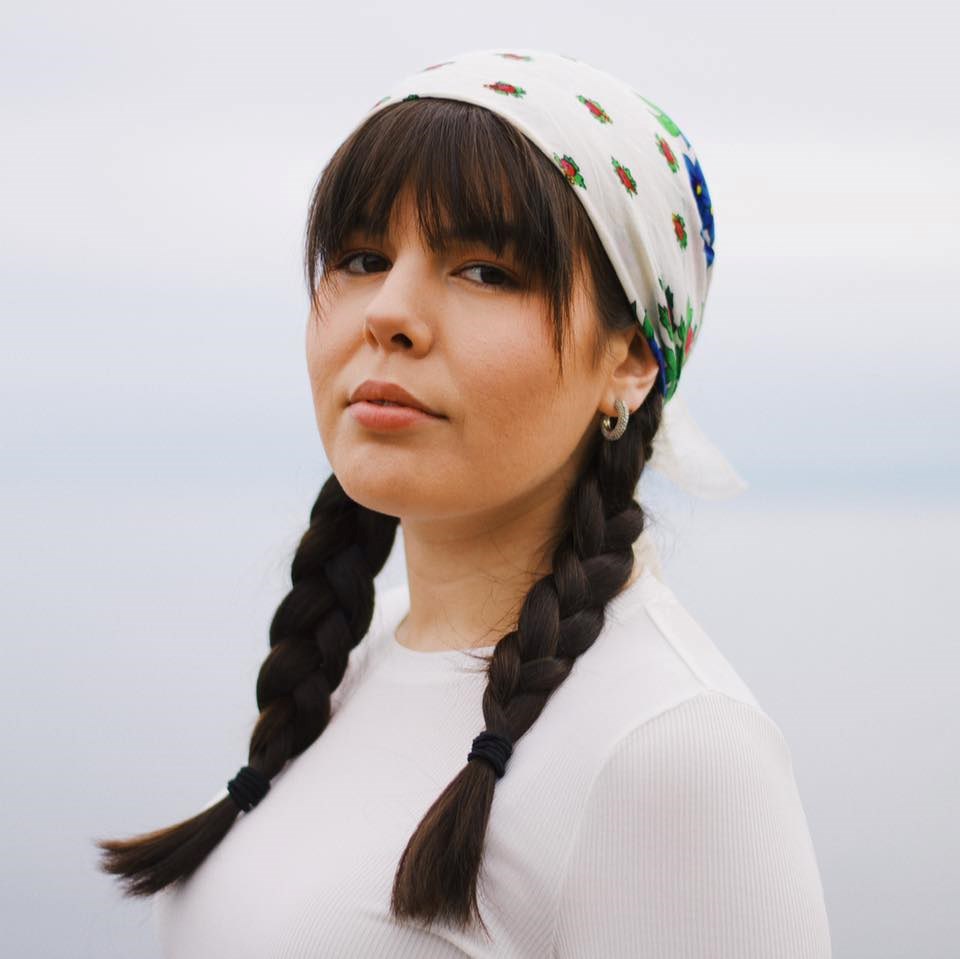THUNDER BAY -- The translation of the words “they tried to strip us of our voices, but they won’t silence us anymore” from English to Cree brings to spotlight the soul of Sara Kae’s music as she lets her indigenous heritage and identity shine, in her latest single, “Rise.” Music is a universal tool that brings people together; gives the artists a creative outlet to express themselves. An Indigenous artist born and raised in Thunder Bay, Ont., Kae becomes the voice of Indigenous culture through her music.
Best described as a pop, singer-songwriter, Kae got started in the music industry around the age of 12. The realization of the impact of music inspiration in her life and her loved ones’, Sara prepared for a career in the music industry. In her early years, Sara began conducting workshops and performances in surrounding communities and reservations in Thunder Bay for youth.
“My first spark with song writing started young around the age of eight, I realized how much I enjoyed creating stories, poetry that turned into songs. I felt a deep connection with the communication and storytelling with music. I loved the narratives that I got to connect with and felt heard when I could create nothing into this beautiful, creative idea. There were no rules, which is what I liked the most. I enjoyed school and the conventional classes I was taught but enjoyed the freedom that songwriting and music creation gave me. I felt as if I could be my authentic self this way,” she says.
To kickstart a career in the music industry, Kae moved to Mississauga after high school to attend a private music college called Metalworks allowing her to gain connections in the GTA which led to more music opportunities. Eventually, she had the breakthrough in her career when she got to host at a Toronto radio station. The pandemic created a path for her that she had not prepared for, with her relocating back to Thunder Bay at the beginning of 2021. True to the saying, ‘when a door closes, another one opens,’ an opportunity working for the Thunder Bay Symphony Orchestra embarked a new adventure for her career.
Kae’s passion and the desire to share her inspiration of life and her experiences and the stories she has been told and evoke emotions in people led to her composing the latest single, “Rise,” carrying the voice of indigenous heritage, is scheduled for a release in June 2022. She hopes to directly share those moments and share it in a song format where the lyrics, melody, rhythm and instruments communicate with one another to evoke an emotion.
Rise and shine
Identity is the driving force for who Sara is as a person and artist. According to her, it has a huge influence on her stories, her experiences, and the songs she writes. Sara wants to write a new narrative of celebrating the Indigenous culture and people with the negative connotations from a racist lens, and her latest song aims to set that narrative.
“Rise transpired because of the unique experience of an Indigenous person talking about the struggles, but the resilience that we carry. I want Indigenous identity to be thought of without the negative connotations of a racist lens. Our people are hurting, and our languages are dying. We need representation and language revitalization to ensure that our culture remains. We were stripped of our rights to look, speak, and practice our Indigeneity. This creates a heavy responsibility on our own people to ensure that we do not lose that aspect of ourselves. Unfortunately, the colonial government does not care if our language and people die so we take it on ourselves to create opportunity for the next generations to have those opportunities to learn the language, cultures, and teachings that the generations before us were told not to. In “Rise” I have Cecil Hookimaw translate, “they tried to strip us of our voices, but they won’t silence us anymore” from English to Cree. I am mainly Ojibwe & Cree with my Cocum being an Ojibwe woman speaking both Ojibwe and Cree language who I originally planned to translate for me, but she passed before she could. Cecil took this on for me bringing this image to life which means the world because not only is it bringing this important message to my community but keeping this memory of my cocum alive as well,” she says about the importance of language and embracing indigenous culture."
Not every artist is created the same way, and Kae is one of those unique artists from our community. Having grown unconventionally and growing up with siblings who were brought into the family by their parents after struggling with substance abuse, poverty, and inadequate living situations, Kae knew life only as a blended family I grew up unconventionally, but never realized until I got older.
My parents being the amazing people they are, took in teenagers who struggled with substance abuse, poverty, and inadequate living situations from before I was born. I only knew a life as a blended family. Throughout the years, my parents had 22 different kids live with us at one point or another. In my teens, we took in younger children which I believe truly shaped me wanting to become a role model (not only for them, but for children just like them). They inspired me to be and do better.
I had the chance to directly see the struggles that many individuals go through, inspiring me to use my music as a tool for healing. Growing up as an Indigenous child raised traditionally, I loved my roots until I saw the reactions from some of the community towards my Indigeneity. I felt embarrassed which pushed me away from wanting to participate creating a divide with my culture for many years. However, as I got older, I found that there were people in the community who wanted to celebrate those same roots that I once was told to be embarrassed about. They encouraged my stories and dreams to be shared which I believe kept pushing me forward during those times (cut the sentence short here). The support from my family and select people in my community really are the reason that I felt as if my career in my music (as an Indigenous artist) was a realistic dream,” she says.
This song release is just the beginning of a wonderful career trajectory for Kae. She hopes to be performing, creating, and traveling more. With the song set to release on multiple platforms for public on June 17, Sara has been keeping busy by doing interviews and speaking to new people about new opportunities.
“My writing process is completely based on an emotion, a moment, a memory, but I directly must feel whatever I am writing about whether it be my experience or another, I need to be able to feel so I can write about it. I do not necessarily write music or lyrics first, it's whatever feels best in that moment to me. I know that when I am writing in the evening, that is when my best songs come to life. I like the loneliness of the evening where I feel that I can completely express myself with no judgement (even internal). I believe the hardest part of my career is having to wear so many hats at the start. Since I was young, I had to learn and do so many things that I may not been comfortable with. It is the life that independent artists live, but we do it for the love of our music. Thankfully, I have had help whether it be from my family, my label, peers in the music industry, etc, but regardless, it takes a village so getting started can be hard. However, I will say this has opened me to new opportunities. I am enjoying the journey and hoping the destination is ever evolving. I want to be using my music to inspire and meet new people who inspire me. One of the main goals is to be recording more music with plans to perform larger stages!” she says as she talks about her writing process, which has been the source of her success, and the future she cannot wait to embark on.





.png;w=120;h=80;mode=crop)